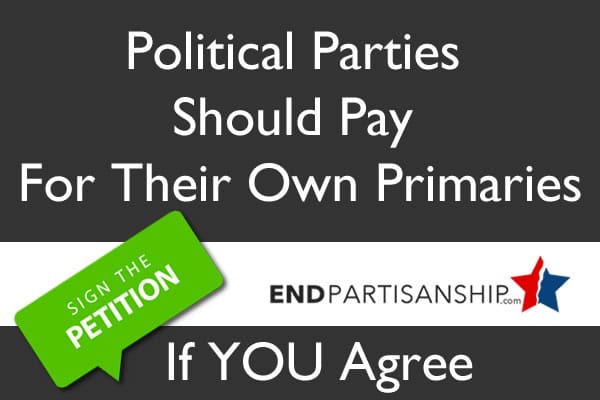No Labels to Release National Strategy for Bipartisan Cooperation

There is one group in Washington that believes it is in the best position to bridge the partisan divide hampering many of the decisions in Congress. No Labels is composed of lawmakers and policy leaders of both major political parties.
“A majority of Americans are so upset with all the gridlock that has stopped every sort of action that moves the country forward,” said Nancy Jacobson, a co-founder of No Labels.
The organization was created after the Affordable Care Act passed without any Republican support, prompting the need to re-examine the partnership between Republicans and Democrats on Capitol Hill.
“That vote passed without one Republican vote; that really was troublesome to us,” said Jacobson. “That's when the toxicity started. They ramrodded such a big idea through without much consensus.”
No Labels is built on the idea of gathering citizen leaders and politicos from various backgrounds to find solutions to the problems that Congress and the Obama administration can’t seem to figure out.
Since its inception, the group has launched several viral campaigns to bring attention to the partisan gridlock in D.C. With a three-pronged mission -- Make Congress Work, Make Presidency Work, and Make Government Work -- No Labels wants to rid politics of the discourse that confines legislation and hold politicians accountable for failing to do their jobs.
During the federal government shutdown in October, No Labels led an effort, called "Demand A Ceasefire," to get Americans to advocate for Congress to finalize a bill to reopen the government and extend the debt ceiling.
Additionally, in January, No Labels initiated a bipartisan group of House and Senate members -- called “problem solvers” -- who are supposed to hold weekly meetings outside the halls of Congress “to build trust across the aisle.”
No Labels requires the problem solvers to attend the meetings regularly, have the right attitude, and be a real leader, which means telling Americans the truth and governing for the future -- not the next election.
While the group is billed as “a growing citizens’ movement of Democrats, Republicans and independents dedicated to promoting a new politics of problem solving," its main decision makers are heavy hitters in the Beltway political scene. Former Utah governor and 2012 Republican presidential hopeful Jon Huntsman, U.S. Senator Joe Manchin (D-W.Va), and former Indiana Democratic Senator Evan Bayh have all been appointed co-chairs.

Their faces are emblazoned on the homepage website as a reminder of the organization’s bipartisanship.
Jacobson has a near 30-year career working on various campaigns, including those of Bill Clinton and former Democratic Senator Gary Hart. Her relationship with former Bayh runs deep as she had shaped the financial core of his campaign efforts for more than 15 years.
Co-founder Mark McKinnon is a top Republican strategist having spent his 20-year career scoring major election wins for former president George W. Bush, former Texas Governor Ann Richards (a Democrat), and Senator John McCain.
No Labels is also made up of other notables as well who form the back end of the group. CNN political analyst and avowed centrist John Avlon, Independent congressional candidate Bill Bloomfield, and Republican strategist Ron Christie, who was an integral member of former vice-president Dick Cheney’s staff, are billed as co-founders as well.
Jacobson said these political ties are necessary to put words to action.
“You can have citizens all you want, but if you don’t have allies in Congress, you can’t get things done,” she said.
No Labels has been criticized for running on a campaign-style platform devoid of substance and an unwillingness to stand on social issues. Slate called the group “noble in theory.”
Slate reporter Christopher Beam argued that the kind of bipartisanship No Labels touts is not based on parties joining hands, but on “a moment when their self-interests happen to align—moments that are increasingly rare.”
But, Jacobson said party disillusionment is at the heart of the problem. Politicians that hold to their party’s ideology hurt the chances for real conversations to occur between members within both chambers in Congress.
“You can’t have a ‘my way or the highway approach,’” she said. “Everybody sticking to their position is not a recipe for success.”
Jacobson revealed that No Labels plans to release a book in February calling for a national strategy that would be based on shared goals from members of both parties. She could not expound on details of the plan, but said the solutions and policies to be formed from it would reflect the spirit of bipartisan negotiation that has not been seen since the Clinton-Gingrich partnership in the 90s.
“This country has never had a national strategy,” said Jacobson. “We’ve had a Democrat plan and a Republican plan. We lurch from plan to plan, party to party."
She added:
"No company works that way, other countries don’t work that way. ”
Jacobson said that No Labels is in a position to capture the voice of those who have had enough of partisan bickering and want better from the government. The group hopes to make enough noise to create a strong faction within Congress that can actually create real progress.
“People are getting very angry and frustrated,” she said. “I believe that the majority of the people in this country, the majority of independents, are gonna rise up.”





